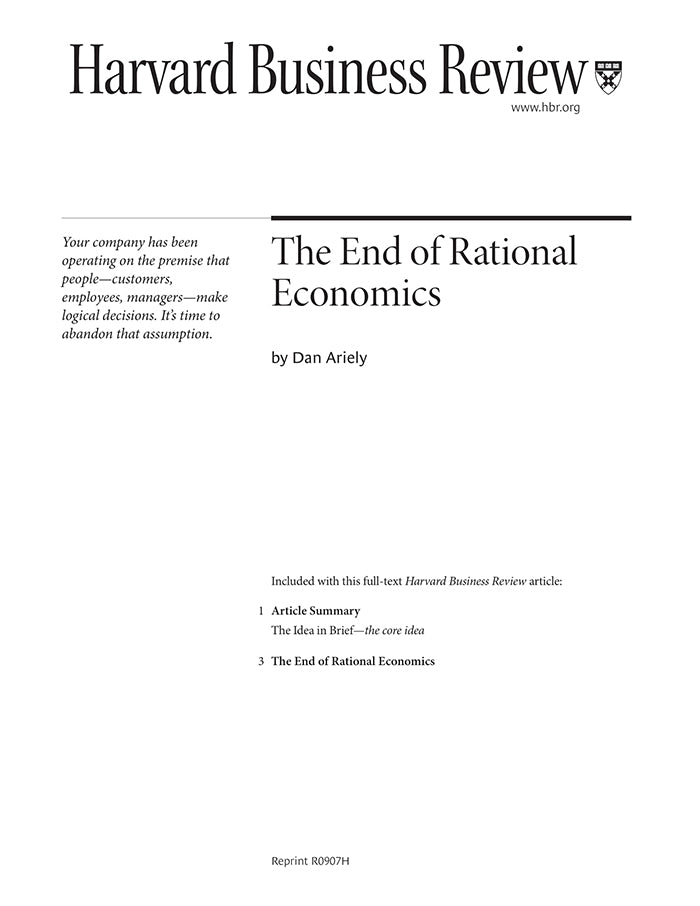The End of Rational Economics
受取状況を読み込めませんでした
Standard economic theory assumes that human beings are capable of making rational decisions and that markets and institutions, in the aggregate, are healthily self-regulating. But the global economic crisis, argues Ariely, has shattered these two articles of faith and forced us to confront our false assumptions about the way markets, companies, and people work. So where do corporate managers - who are schooled in rational assumptions but run messy, often unpredictable businesses - go from here? In this lively article, the author, a professor of behavioral economics at Duke University, shows how the emerging discipline of behavioral economics can help businesses better defend against foolishness and waste. Smart organizations will develop a behavioral economics capability by hiring qualified experimenters and conducting small trials that build on one another, revealing a radically different view of how people make decisions. Revenge and cheating are only two of the irrational behaviors that companies will find underlying their employees' and customers' actions. Once an understanding of irrationality is embedded in the fabric of an organization, a behavioral economics approach can be applied to virtually every area of the business, from governance and employee relations to marketing and customer service.
【書誌情報】
ページ数:12ページ
サイズ:A4
商品番号:HBSP-R0907H
発行日:2009/7/1
登録日:2012/3/28


